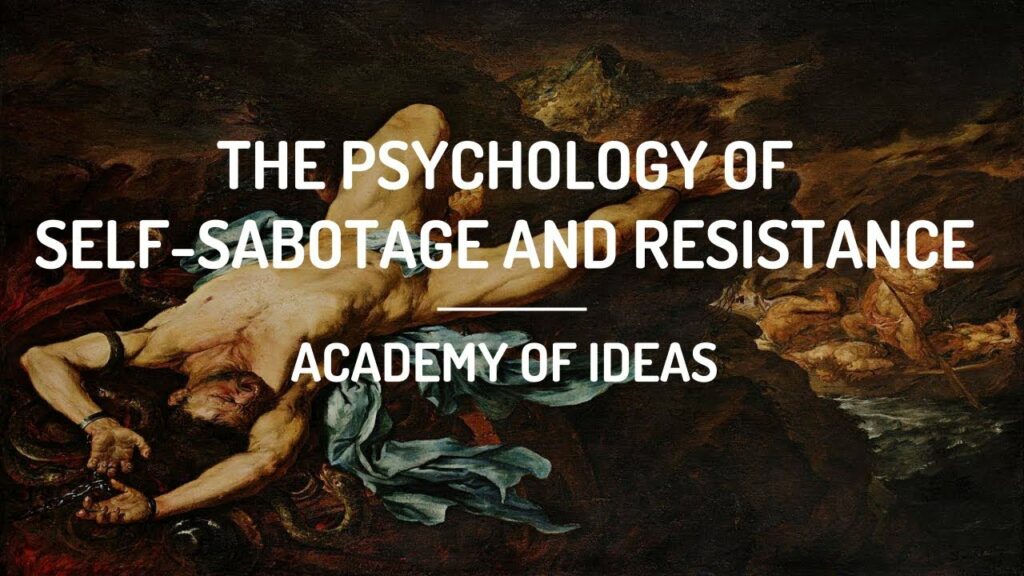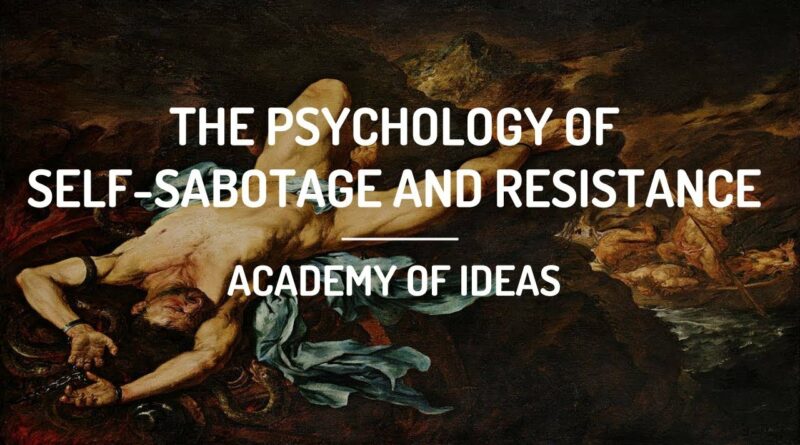How to Deal With Self-Sabotaging Beliefs
How to Deal With Self-Sabotaging Beliefs: Learn how to get out of your own way.

Self-sabotaging beliefs are insidious thoughts that tell you that you’re not good enough, can’t do it, or are not worthy of success. They can manifest themselves in various ways, such as procrastination, self-doubt, and perfectionism.
In this article, we’ll explore what self-sabotaging beliefs are, how to identify them in yourself, and how to deal with them when they pop up. We’ll also look at some prevention techniques so that these beliefs don’t sabotage your life and prevent long-term progression.
What Are Self-Sabotaging Beliefs, and How Do They Manifest Themselves?
Self-sabotaging beliefs are those negative thoughts that portray you’re not good enough, can’t do it, or are not worthy of a good life or happiness. They can manifest themselves, such as procrastination, self-hate, and obsessive-compulsive behavior.
These beliefs can be harmful because they prevent you from taking risks and moving forward in your life.
Here are some examples of self-sabotage: You might stay in a job you hate because you don’t believe you’re good enough to get a better one. You might not release your artwork because you’re afraid.
You might not start your own business because you think you’ll fail. You tell yourself that you are not worthy of a better life.
Self-sabotaging beliefs usually manifest themselves as negative self-talk. The little voice in your head says you are not good enough, that you can’t do it, or that you’re not worthy of success.
To deal with self-sabotaging beliefs, you first need to recognize them. Here are some ways to do that:
- Pay attention to your negative self-talk. What things do you tell yourself regularly? Do you put yourself down frequently? Do you tell yourself that you’re not good enough or can’t do it?
- Identify your patterns of behavior. Do you procrastinate regularly? Do you find yourself not taking risks because you’re afraid of failure?
- Notice how you feel. Do you frequently feel unworthy? Does success elude you even when you’ve achieved it? If any of these are familiar, then it’s likely that you have some self-sabotaging beliefs.
Recognizing these beliefs is important because they’re holding you back from living your best life. They prevent you from taking risks. But once you identify them, you can deal with them.
Techniques To Deal With Self-Sabotaging Beliefs
To move forward with your life, you must recognize and deal with self-sabotaging beliefs.
Try these techniques:
- The first step is to realize your negative self-talk and challenge it. When you catch yourself thinking or saying something negative, stop and ask yourself if it’s true. Chances are, it’s not.
● If you tell yourself that you’re not good enough, ask yourself why you believe that. What evidence do you have to support this belief? Chances are, you’ll find that there is none.
- Reframe your self-sabotaging beliefs. For example, if you tell yourself that you’re not good enough, reframe it as “I’m doing my best, and that’s good enough.
● If you tell yourself that you can’t do it, reframe it as “I can try, and if I fail, I’ll learn from it.”
- Use affirmations to counter self-sabotaging beliefs. For example, if you tell yourself, “I am worthy of success,” “I can achieve my goals,” or “I am loved.
● You’re training your mind to focus on positive thoughts instead of negative ones by using affirmations.
- Take action despite your self-sabotaging beliefs. For example, if you want to start your own business but you’re afraid of failing, take some small steps towards your goal.
● You can start by researching businesses in your field or networking with people who have started their businesses.
● By taking action, you’re proving to yourself that your self-sabotaging beliefs are wrong.
How Can You Prevent These Beliefs From Sabotaging Your Life In The First Place?
The best way to prevent self-sabotaging beliefs from taking over your life is to develop a healthy mindset. A healthy mindset focuses on growth, not perfection. It’s important to recognize that we all make mistakes, and that failure is a part of life. Instead of beating yourself up over your mistakes, learn from them and move on.
Another way to develop a healthy mindset is to practice self-compassion. It means being kind and understanding towards yourself, even when you make mistakes. It also means recognizing that we all have flaws and are all doing the best we can with what we have.
Finally, it’s important to surround yourself with positive people. They will help you see the good in yourself. They’ll also help you stay motivated and focused on your goals.
Self-sabotaging beliefs can hold you back from living your best life. But once you identify them, you can deal with them using techniques like challenging your negative self-talk, reframing your beliefs, and affirmations.
You can also prevent these beliefs from taking over your life by developing a healthy mindset and surrounding yourself with positive people.
By taking these steps, you’ll be on your way to living a more fulfilling and successful life.




